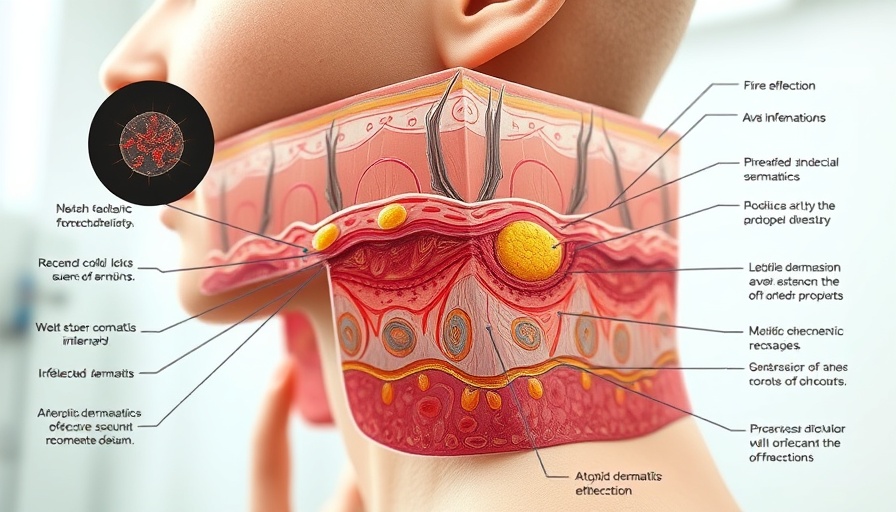
Unlocking Better Health Outcomes for Atopic Dermatitis
Understanding atopic dermatitis (AD) goes beyond mere symptom management; it involves setting and achieving optimal treatment targets that significantly enhance the quality of life for those affected. The recent AHEAD initiative demonstrates this paradigm shift by promoting goal-directed therapy that prioritizes patient experiences and shared decision-making. As we explore the implications of these strategies, it becomes evident that the future of AD treatment lies in achieving minimal disease activity (MDA).
Journey Towards Minimal Disease Activity
Traditionally, AD management has centered on controlling flare-ups, but studies highlight that reaching MDA—defined as optimal clinician-reported outcomes and patient-reported outcomes—provides a more holistic approach. “Hitting optimal treatment targets in AD—EASI-90 for skin and WP-NRS 0/1 for itch—delivers real impact,” states Dr. Christopher G. Bunick, affirming the profound positive influence on patients’ sleep quality, daily functioning, and overall satisfaction.
The Role of Goal-Directed Therapy
This evolving framework for AD treatment emphasizes the importance of tailored approaches. By employing a goal-directed therapy model, healthcare providers can engage patients in their treatment plans, thereby fostering a sense of agency and involvement in managing their health. Patients who feel heard and involved are more likely to comply with treatment protocols, directly translating to better health outcomes.
Integrating Innovative Therapies
Innovative therapies such as upadacitinib, a medication under review in numerous clinical trials, present new avenues for achieving these optimal treatment targets. Pooled data from trials like Measure Up 1 and AD Up reveal that using these advanced therapies can facilitate significant progress in attaining both clinician and patient-reported outcomes. This integration of science and patient-centric approaches delineates a new era in both dermatology and aesthetic medicine.
The Essence of Patient-Centered Care
Aligning clinical goals with patient realities is crucial in managing chronic conditions like AD. Studies illustrate that treatments tailored to individual needs not only improve physical symptoms but also address psychological aspects, which is vital for holistic health care. As such, scratching the surface of patient care no longer suffices; inviting patients into goal-setting dialogues reflects a commitment to comprehensive well-being.
Conclusion: Embrace the Change in AD Management
In essence, to improve life with atopic dermatitis, we must focus on collaborative strategies that merge innovative science with compassionate healthcare practices. By achieving optimal treatment targets, we not only tackle the symptoms of AD but also uplift the entire patient experience.
As we continue to explore advancements like non-invasive therapies and beauty technologies, consider how these innovations can be applied beyond the clinical setting—to enhance self-care practices and overall skin health. Stay informed and proactively engage with your skin health by seeking out the latest treatments and innovations that prioritize your well-being.
 Add Row
Add Row  Add
Add 

 Add Row
Add Row  Add Element
Add Element 




Write A Comment